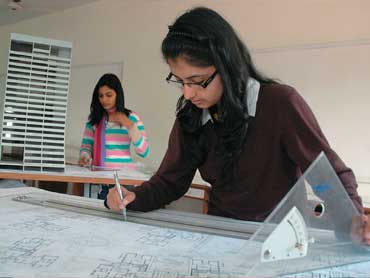
Mechanical, Electrical, Computer Science or something else? Deciding upon the right engineering stream is quite tricky for both students and their parents.
Most of us go through the same dilemma after clearing different entrance exams. Career options for medical and arts students are relatively clear, however, a lot of thought goes into choosing the right branch in engineering.
Most students go by the job prospects of the field while making this decision, interest and aptitude could get ignored in the process. Besides the most popular branches like Mechanical, Computer, Electrical and Civil, there are numerous other engineering branches like Chemical, Biotechnology, Aeronautical, Industrial, Instrumentation, Marine, etc. which have a good scope.
Here are 5 tips which every student should consider while making this decision:
Click NEXT to continue

While we may say that scope for a field keeps changing with time, as we see new trends coming up every few years.
The reality is, every branch has good scope and opportunities if you perform well in it.
Contrary to this, if you take up a branch just based on its job prospects and lack interest in it, you'll end up getting nowhere.
So it is very important to go for a branch that is of your interest.
Click NEXT to continue

It is that time in your life, where you have to choose from a platter.
Whether you choose college A over college B or branch X over branch Y should not be a random decision and instead be based on research on these colleges and the electives they offer under each course.
Run through the college websites and the course material they offer under the branch you aspire for to make the right decision.
Click NEXT to continue

Engineering provides opportunity to specialise.
Choosing one from the various types of engineering disciplines is not an easy job.
Digging deeper and knowing more about every branch can help you in making the right choice.
It is the same as taking a straight way to your destination or taking roundabouts to get to the same place. Clearer the approach, better will be the results.
For example, if you are interested in cars, you might as well want to take up Automobile Engineering instead of Mechanical. But the message is: be sure of what you want to pursue.
Click NEXT to continue

It is critical to understand what kind of professional work is expected out of you once you take up a job.
For instance, Civil Engineering means a lot of field-work and if you are not suited for that, you better not choose Civil Engineering in the first place.
Take the example of Mohit, a Biomedical Engineer from Delhi who uses technology to help burn victims recover from their injuries. Mohit loves his job.
He was aware and has also realised how the field of Biomedical Engineering is a bridge between medicine and engineering.
Click NEXT to continue

If you aspire to do post graduation, and have some ideas already, it might be a good idea to do a quick check on the opportunities for the post graduation.
For example, if you choose to pursue Bachelors in Mechanical Engineering, you can do your Masters in Robotics, Automobile or Industrial apart from core mechanical opportunities like manufacturing etc.
But if you do a Bachelors in Automobile Engineering, your options for post graduation become limited.
The author is a strong believer of consumer web and has instrumental in the founding of Yournextleap.com, a career portal. Before this, she has worked as a Research Analyst in the Office of the President of the Silicon Valley headquartered Risk Management Solutions (RMS) Inc. She is a Computer Science Engineer from College of Engineering, Pune and holds a Masters degree from University of Southern California, Los Angeles